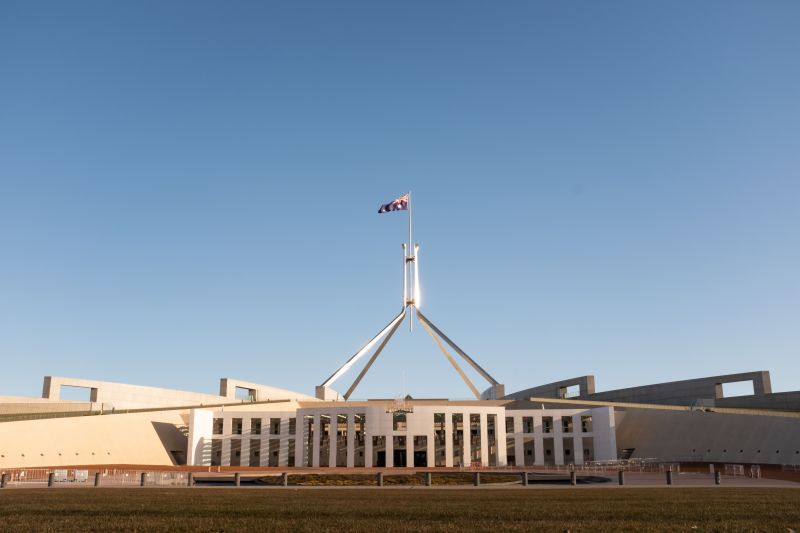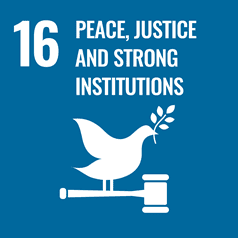Australia’s human rights framework
Australia presents itself – and is largely ranked – as a global leader in protecting civil and political rights.
It has a strong history of commitment to the UN’s human rights agenda, including as a party to seven core human rights treaties. Australia is also an enthusiastic participant in international human rights monitoring processes, including the Universal Periodic Review.
Yet Australia also receives persistent international criticism, notably in relation to the rights of Indigenous peoples, refugees and asylum seekers.

Australia has a dualist legal system. The Australian government can consent to treaty obligations that are binding on state parties, but those obligations are not absorbed into domestic law. This limits Australia’s capacity to meet its human rights obligations, because many are unenforceable under domestic law.
Instead, Australia has built a patchwork human rights system. The Constitution affords only minimal rights protections, including the right to vote and the right to a trial by jury for certain offences.
Only Victoria, the Australian Capital Territory and Queensland have passed human rights legislation. But state laws do not include comprehensive protection for all the human rights protected by the treaties Australia has signed.
Recently in Queensland, the LNP government rejected the recommendations of a review into the state’s Human Rights Act that would have enhanced the right to adequate housing and the right to be free from gender-based violence.
At the federal level, parliament has a process for human rights scrutiny of legislation, but has not passed a comprehensive national human rights law.
The path forward
Between 2019 and 2023, the Australian Human Rights Commission conducted a national inquiry, Free & Equal. Its final report recommended major reforms including the passage of a Human Rights Act.
A separate inquiry by the parliamentary Joint Committee on Human Rights also proposed national human rights laws. These inquiries provided model legislation for parliament’s consideration.
A Human Rights Act would remedy gaps in Australia’s compliance with its international obligations. Importantly for Australians, an act would provide comprehensive and enforceable protection for the rights we are all entitled to.
Where does the government stand?
Labor’s national platform notes Australia is an outlier due to its lack of comprehensive human rights legislation. It commits a federal Labor government to:
"Consider whether our commitment to the implementation of human rights standards could be enhanced through a statutory Charter of Human Rights and Responsibilities, or similar instrument."
In its first term, the Albanese government acted quickly to ensure that the Australian Human Rights Commission retained global A-status accreditation. It also conducted the promised parliamentary review into Australia’s human rights framework. However, it is yet to respond to the recommendations of that review.

The prospects of human rights law reform seemed slim in the immediate aftermath of the Voice referendum. The government appeared hesitant to make policy commitments in Indigenous affairs.
Yet Aboriginal and Torres Strait Islander Social Justice Commissioner Katie Kiss argued the referendum outcome highlighted the urgency of reform that would realise “even the most basic human rights” of Indigenous people.
The time is right
An argument can be made that the values expressed as central to the government’s second term agenda are tightly aligned with the values of the international human rights framework.
In his speech on election night, Prime Minister Anthony Albanese said:
"Today, the Australian people have voted for Australian values. For fairness, aspiration and opportunity for all. For the strength to show courage in adversity and kindness to those in need."
He went on to highlight areas of need to ensure that every Australian has “the opportunity to be their best”, which included:
- fair pay for workers and a right to disconnect
- secure housing
- equal pay and social equity for women
- access to quality education for all students
- the National Disability Insurance Scheme
- protection for a healthy environment
- equal rights for First Nations people
- Medicare.
These are all matters of central concern to the electorate. We may not talk about them all the time in human rights language, but they are also human rights issues.
Australia is a party to human rights treaties that protect fair working conditions, an adequate standard of living and a right to health, women’s rights, the right to education, the rights of people with disabilities and Indigenous peoples, and the right to a healthy environment.
The ground has been laid for comprehensive human rights reform in Australia. This project could unite “Australian values” of fairness and equity with protection of human rights in Australian law.
We all stand to gain from opening our national conversation to human rights principles.
This article is republished from The Conversation under a Creative Commons license. Read the original article.
Aligned with the United Nations Sustainable Development Goals
Related Articles

The High Court made a landmark decision on native title law. Here’s what it means
Aboriginal and Torres Strait Islander readers are advised this article contains the name of a deceased person.
Read more

More than two thirds of organisations have a formal work from home policy here's how the benefits stack up
The opposition wants to call time on letting public servants work from home. In a speech to the Menzies Research Institute this week, shadow public service minister Jane Hume said, if elected, a Coalition government would require public servants in the office five days a week:
Read more

From bean-counters to cyber-sleuths: how accountants are a frontline defence against online crime
Once considered to be simply “bean counters”, accountants now play an important role in the defence, investigation and protection against cybercrime.
Read more

How can you stay safe from cyber attacks? Here are 2 simple checklists from experts
“Cyber security” may sound like a far-off worry for big corporations or telcos, but that’s far from the case.
Read more

Conservative governments protect more land while socialists and nationalists threaten more species
The dire state of biodiversity across the globe suggests not all governments are willing to act decisively to protect nature. Why is that the case, and is a country’s political ideology a factor?
Read more

Bold climate action benefits more than just the environment - it's also great for business
As the world grapples with the intensifying challenges of climate change, businesses are under increasing pressure to take action.
Read more
